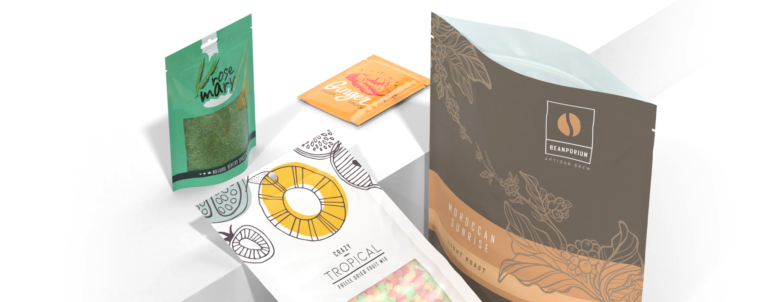Embracing Ươmen: A New Paradigm for Gender Inclusivity and Empowerment
In the continuous exchange about orientation correspondence and inclusivity, the expression “ươmen” has arisen as a huge image of solidarity and strengthening. In contrast to regular orientation orders, ươmen epitomizes a large number of human excellencies that rise above social and cultural standards. This comprehensive term celebrates conventional ladylike characteristics while elevating an all inclusive way to deal with compassion, flexibility, and supporting. In this article, we will dig into the starting points, significance, and present day pertinence of ươmen, featuring reforming our impression of orientation and human potential.
Characterizing Ươmen: Past Orientation Limits
An Image of Inclusivity
Ươmen is something beyond an item; it represents a lifestyle. Drawing on customary home grown cures and reinforced by contemporary logical forward leaps, ươmen presents a state of the art arrangement custom-made to ladies’ wellbeing. It expects to change taking care of oneself for ladies by tending to a scope of requirements, from hormonal equilibrium to mental clearness.
Verifiable and Etymological Roots
Old Methods of reasoning and Eastern Customs
The idea of ươmen starts from old ways of thinking and Eastern customs that underscore the amicability among manly and female energies. The expression “ươmen” is a mix of the Eastern word “ư,” meaning quintessence or soul, and “sign,” addressing womanhood or womanliness. This combination epitomizes a far reaching perspective on human ideals, going past customary orientation divisions and remaining as serious areas of strength for an of inclusivity and uniformity.
The Substance of “Ư” and “Sign”
In Eastern methods of reasoning, the person “ư” addresses the center pith or soul of an individual, typifying the characteristics that characterize somebody past their actual structure. When joined with “sign,” which means womanhood or gentility, the term ươmen is made. This term commends excellencies like sympathy, empathy, and versatility — characteristics generally connected with womanliness however all around pertinent to all sexes. This idea supports a move past customary orientation standards towards a more comprehensive comprehension of human instinct.
Key Parts of Ươmen
Development Through Time
The possibility of ươmen has altogether advanced over the long haul, reflecting changes in cultural standards and social practices. Before, ươmen was related with goddesses and heavenly female figures loved for their insight, supporting nature, and strength. These characteristics ultimately converged with cultural assumptions and customary orientation jobs, prompting a more restricted comprehension of womanliness. Today, in any case, the idea of ươmen is being resuscitated to recover these excellencies, underscoring their significance past the bounds of customary orientation definitions.
Social Translations
Various societies decipher the idea of ươmen through their one of a kind qualities and encounters. In Eastern practices, this thought lines up with the harmony between yin and yang, representing the amicability among manly and ladylike energies. In Western social orders, ươmen reverberates with the objectives of the women’s activist development, supporting for uniformity, inclusivity, and a reclassified comprehension of orientation jobs, subsequently growing the view of human potential.
Importance in Current culture
In the present society, the idea of ươmen holds huge pertinence as we take a stab at orientation fairness and inclusivity. It upholds current endeavors to separate orientation hindrances and perceive the one of a kind qualities that every individual brings, no matter what their orientation. By embracing the standards of ươmen, we can fabricate conditions that esteem sympathy, versatility, and imagination, prompting a more comprehensive and fair society for all.
Systems of Ươmen: Supporting Wellbeing
Ươmen upholds different parts of ladies’ health by dealing with numerous levels. It targets key physiological frameworks, for example, the endocrine and sensory systems to advance equilibrium and imperativeness. Whether you’re overseeing hormonal changes or looking to improve generally prosperity, ươmen offers a comprehensive and viable arrangement.
Center Qualities of Ươmen
Sympathy and Empathy
Sympathy and empathy lie at the center of being human, addressing our capacity to deal with and participate in the impressions of others really. These characteristics aren’t simply wonderful to have; they’re central for molding huge associations and encouraging conditions where everybody feels esteemed and regarded. They permit us to see each other profoundly and make spaces where everybody’s voice can be heard and respected.
Versatility and Strength
Strength, a center feature of being human, typifies our ability to recuperate from difficulties and obstructions. There’s really no need to focus on sheer actual strength, but instead about the inward strength and profound versatility to explore life’s exciting bends in the road with effortlessness and relentless assurance.
Inventiveness and Instinct
People depend on both imagination and instinct to explore life, featuring the significance of reasoning fresh and understanding ourselves profoundly. These characteristics assist us with handling issues from all points, giving us the opportunity to attempt new things and think of special arrangements.
Administration and Realness
In ươmen, being a pioneer implies being consistent with yourself and investing energy into establishing conditions where everybody feels esteemed and included. It’s tied in with cooperating, figuring out others’ points of view, and assisting them with developing. This initiative style supports collaboration and ensuring everybody gets an opportunity to sparkle, zeroing in on reasonableness and offering everybody the chance to succeed.
Strengthening and Change Through Ươmen
Cultivating Self-esteem and Organization
Sympathy and empathy lie at the center of being human, addressing our capacity to deal with and participate in the impressions of others truly. These characteristics are principal for molding huge associations and encouraging conditions where everybody feels esteemed and regarded. They permit us to see each other profoundly and make spaces where everybody’s voice can be heard and respected.
The Job of Instruction
Training assumes an essential part in aiding individuals comprehend and regard each other better. By remembering illustrations for orientation equity and inclusivity in school educational programs, we’re making way for an additional comprehension and humane future. These conversations and illustrations assist with molding future pioneers who are learned as well as compassionate towards others.
Growing the Thought of Orientation with Ươmen
Orientation Inclusivity
At the point when we examine ươmen, it’s frequently associated with qualities generally thought to be female. Yet, orientation isn’t restricted to high contrast; it’s a range. Anybody, paying little mind to how they distinguish, can typify the soul of ươmen.
How about we break liberated from the requirements of customary orientation jobs. Ươmen isn’t just about being ladylike; about embracing an entire scope of characteristics make us human. It’s about thoughtfulness, strength, sympathy, innovativeness — characteristics that know no orientation limits. We should recognize that we as a whole have the ability to encapsulate the pith of ươmen, paying little heed to what our identity is, and praise the assortment of human articulation.
Commending the Culinary Legacy of Ươmen: The Stock
Enter the universe of making the ideal ươmen stock, where every fixing is painstakingly chosen to create a flavor orchestra that tempts the sense of taste. Envision yourself in a clamoring Vietnamese kitchen, encompassed by the fragrance of star anise, cinnamon, and ginger as they mix into the stewing stock, each flavor contributing its one of a kind substance to the last work of art.
Picture the talented hands of the culinary expert, tirelessly mixing the pot, cajoling out the concealed profundities of flavor from every fixing. Hours pass, yet the gourmet expert remaining parts devoted to the cycle, realizing that genuine greatness requires some investment and persistence.
As you relish a bowl of ươmen, you’re not simply tasting a delightful soup; you’re encountering an association with Vietnam’s rich culinary legacy. This soup gives something beyond sustenance; it represents custom and culture, recounting an account of tirelessness, development, and the dynamic soul of Vietnamese cooking.
Building a More Ươmen Society
Aggregate Activity for Inclusivity
Building a general public where everybody feels genuinely seen and esteemed requires aggregate activity. We should handle generalizations head-on, guarantee everybody has a fair shot at progress, and ensure the voices of those who’ve been sidelined are obviously heard. It’s tied in with guaranteeing nobody gets abandoned and that everybody realizes they matter.
The Significance of Diversity
Diversity is fundamental since it perceives the different encounters of people. It recognizes that race, class, sexual direction, inability, and different qualities shape people. At the point when we embrace this viewpoint, we’re better prepared to address the exceptional deterrents looked by changed gatherings. At last, it assists us with making progress toward a general public where everybody feels included and treated decently.
Further Investigation: Ươmen in Writing and Workmanship
In writing and workmanship, we experience endless characters who epitomize the pith of ươmen. Take, for example, Athena from Greek folklore. She’s a goddess as well as an image of intelligence and supporting consideration. Then, at that point, there are the legends and champions of present day books, who face affliction with strength and show empathy even in the hardest conditions. These characters from different societies and time spans help us that the soul to remember ươmen — of solidarity, insight, and sympathy — rises above limits and stays applicable since forever ago.
Difficulties and Reactions
Despite the fact that there are numerous positive parts of the possibility of ươmen, it’s not without its difficulties. Some concern that it could build up generalizations or overlook the intricacies of orientation. It’s vital to mindfully address these worries. While examining ươmen, we really want to guarantee we’re not sustaining obsolete thoughts yet rather opening up new possibilitie
Conclusion
In our current reality where the discussion around orientation uniformity and inclusivity keeps on developing, the idea of “ươmen” arises as a groundbreaking image of solidarity and strengthening. By rising above customary orientation limits, ươmen epitomizes many human ethics — sympathy, versatility, inventiveness, and that’s only the tip of the iceberg — that are generally significant and fundamental for encouraging a more comprehensive society. Established in old methods of reasoning and Eastern customs, the term ươmen recovers and celebrates temperances generally connected with womanliness while pushing for a more extensive, more comprehensive comprehension of human potential.
As we embrace the standards of ươmen, we are urged to break liberated from the limitations of ordinary orientation jobs and commend the different characteristics that make us human. Whether through supporting ladies’ health, encouraging self-esteem and organization, or advancing orientation inclusivity through schooling, the idea of ươmen offers an all encompassing way to deal with individual and cultural change.
By coordinating ươmen into our lives, we prepare for conditions that esteem sympathy, strength, and innovativeness, at last adding to an all the more fair and comprehensive society. This new worldview moves us to rethink our view of orientation and human potential, opening up additional opportunities for a future where everybody feels seen, esteemed, and enabled.






